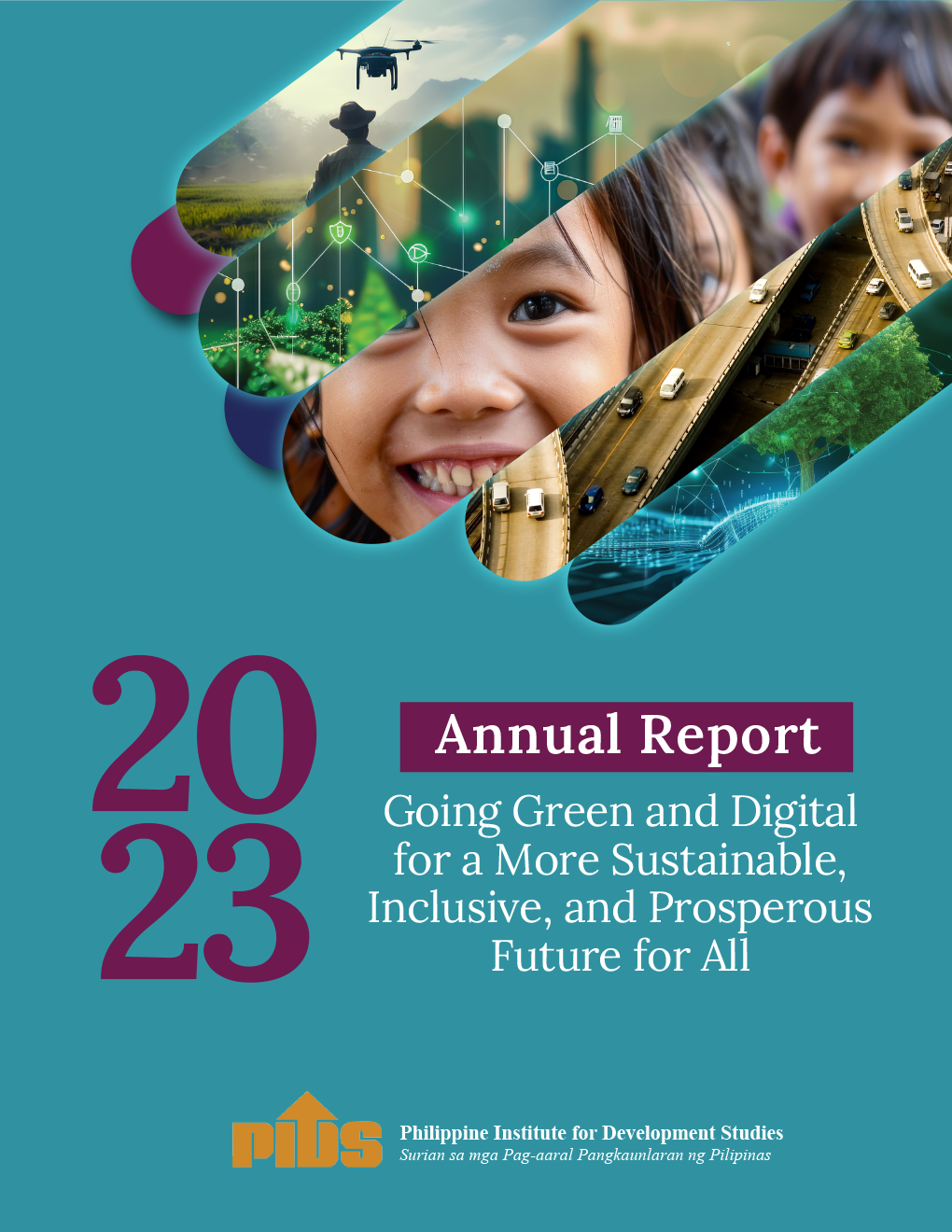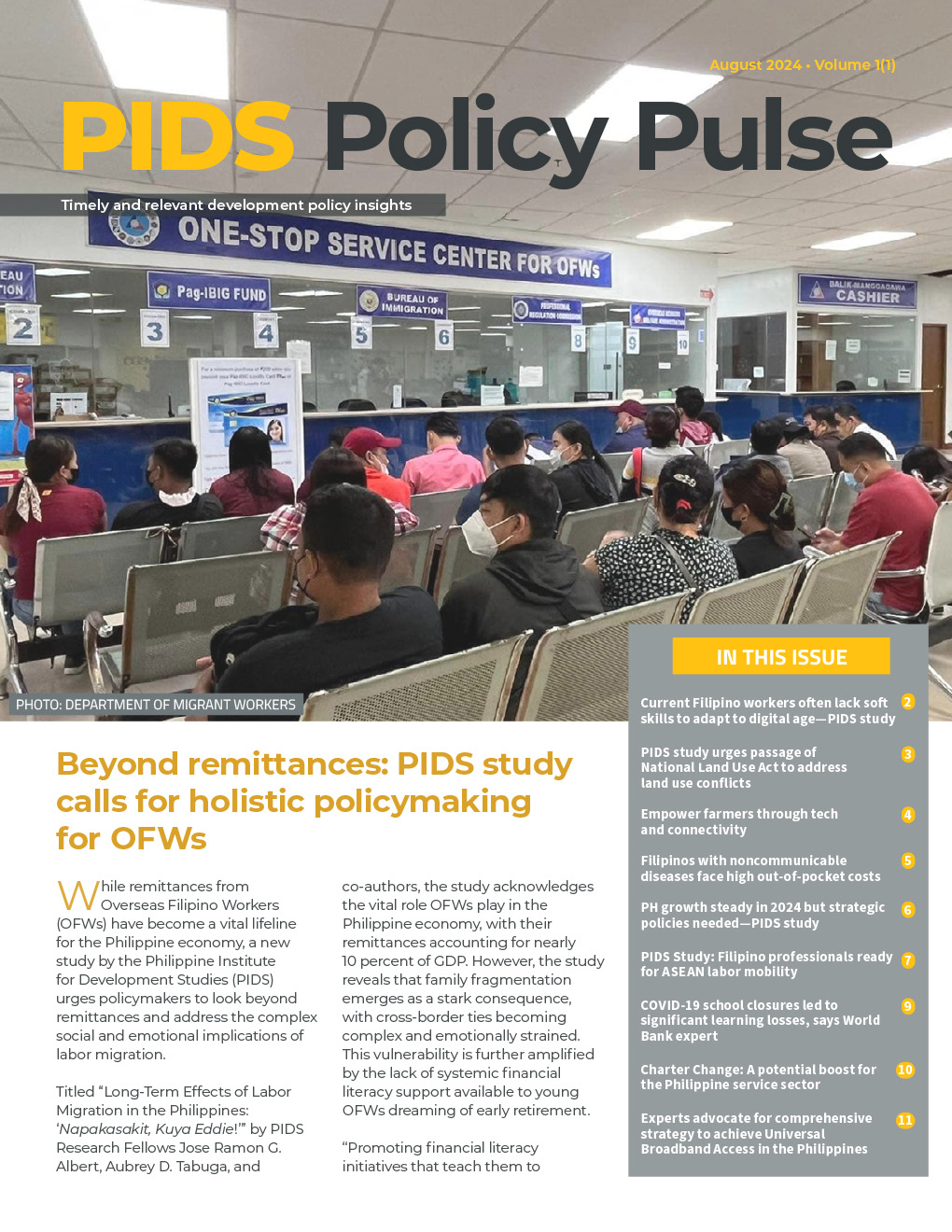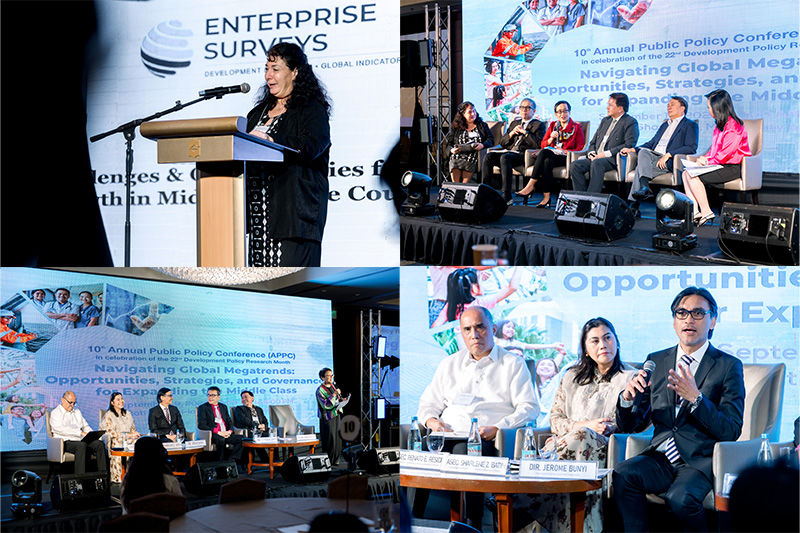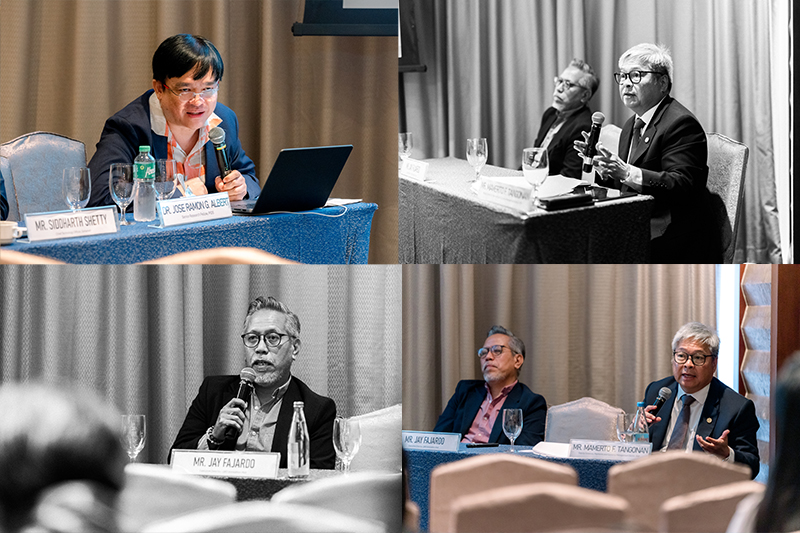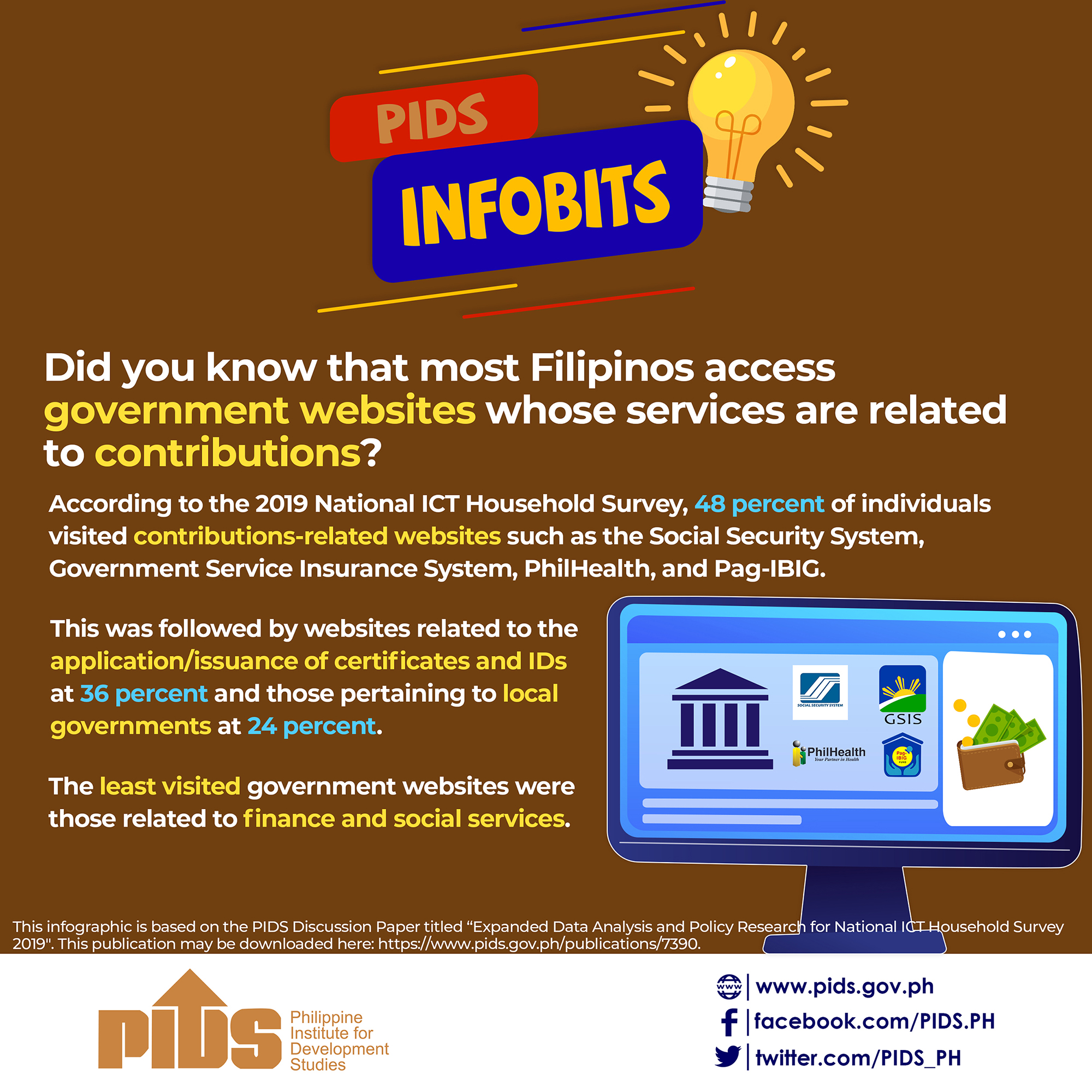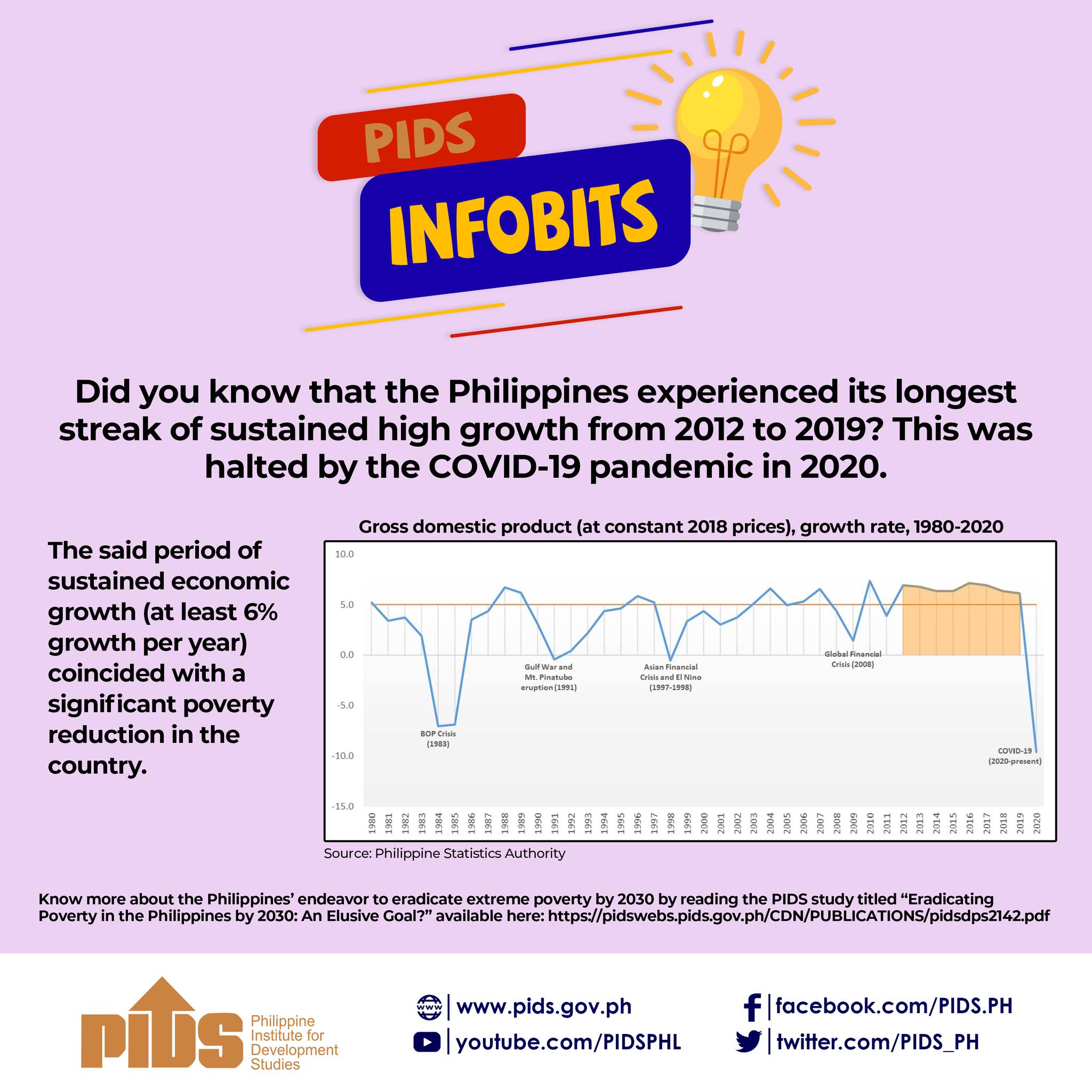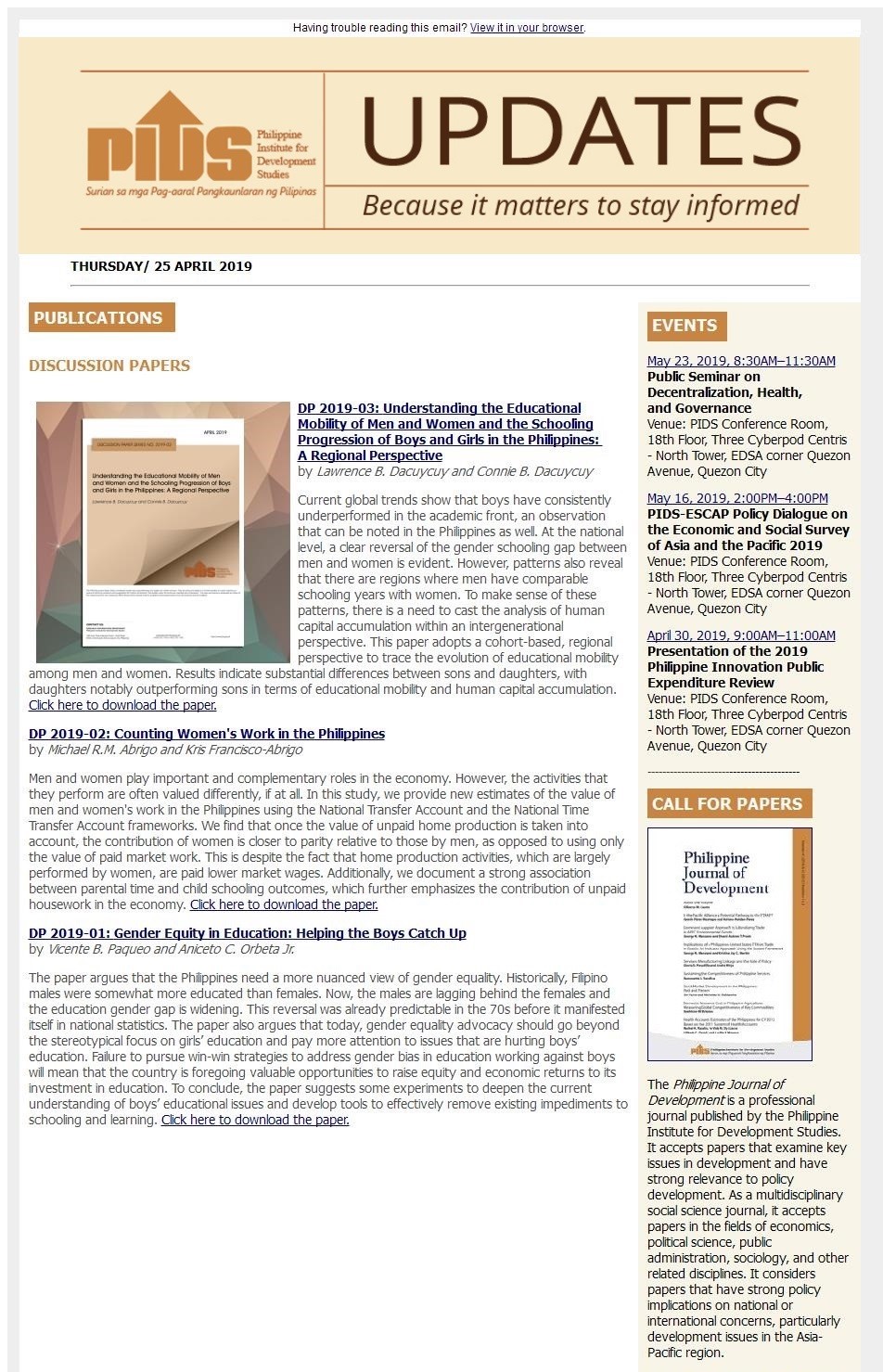
PUBLICATIONS
DISCUSSION PAPERS
DP 2019-03: Understanding the Educational Mobility of Men and Women and the Schooling Progression of Boys and Girls in the Philippines: A Regional Perspective
by Lawrence B. Dacuycuy and Connie B. Dacuycuy
Current global trends show that boys have consistently underperformed in the academic front, an observation that can be noted in the Philippines as well. At the national level, a clear reversal of the gender schooling gap between men and women is evident. However, patterns also reveal that there are regions where men have comparable schooling years with women. To make sense of these patterns, there is a need to cast the analysis of human capital accumulation within an intergenerational perspective. This paper adopts a cohort-based, regional perspective to trace the evolution of educational mobility among men and women. Results indicate substantial differences between sons and daughters, with daughters notably outperforming sons in terms of educational mobility and human capital accumulation. Click here to download the paper.
DP 2019-02: Counting Women's Work in the Philippines
by Michael R.M. Abrigo and Kris Francisco-Abrigo
Men and women play important and complementary roles in the economy. However, the activities that they perform are often valued differently, if at all. In this study, we provide new estimates of the value of men and women's work in the Philippines using the National Transfer Account and the National Time Transfer Account frameworks. We find that once the value of unpaid home production is taken into account, the contribution of women is closer to parity relative to those by men, as opposed to using only the value of paid market work. This is despite the fact that home production activities, which are largely performed by women, are paid lower market wages. Additionally, we document a strong association between parental time and child schooling outcomes, which further emphasizes the contribution of unpaid housework in the economy.
Click here to download the paper.
DP 2019-01: Gender Equity in Education: Helping the Boys Catch Up
by Vicente B. Paqueo and Aniceto C. Orbeta Jr.
The paper argues that the Philippines need a more nuanced view of gender equality. Historically, Filipino males were somewhat more educated than females. Now, the males are lagging behind the females and the education gender gap is widening. This reversal was already predictable in the 70s before it manifested itself in national statistics. The paper also argues that today, gender equality advocacy should go beyond the stereotypical focus on girls’ education and pay more attention to issues that are hurting boys’ education. Failure to pursue win-win strategies to address gender bias in education working against boys will mean that the country is foregoing valuable opportunities to raise equity and economic returns to its investment in education. To conclude, the paper suggests some experiments to deepen the current understanding of boys’ educational issues and develop tools to effectively remove existing impediments to schooling and learning. Click here to download the paper.

